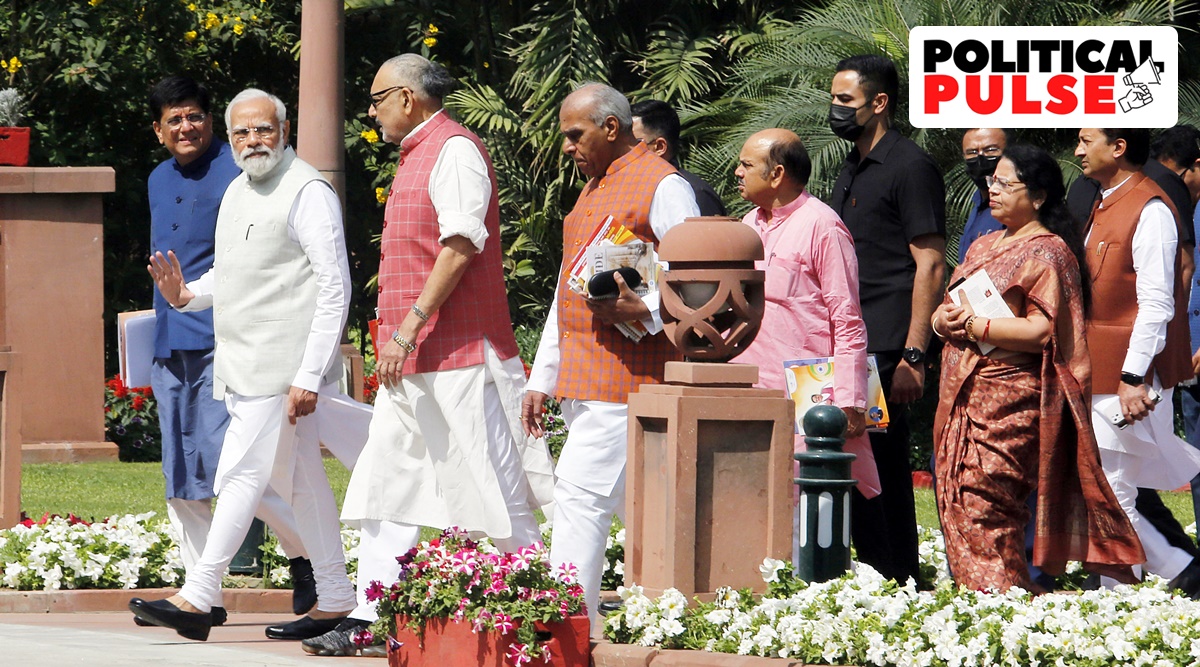Making Sense of the NDA Churn: As BJP Outgrows Partners, a New Alliance Template Emerges
In the ever-evolving landscape of Indian politics, the National Democratic Alliance (NDA), under the leadership of the Bharatiya Janata Party (BJP), has been undergoing a profound transformation. Over the years, the BJP's ascendancy as the country's dominant political force has resulted in the departure of several long-standing allies, reshaping the political alliances in the nation. This article delves into the intricacies of this NDA churn, exploring the reasons behind it and its potential implications, especially in the context of the upcoming 2024 Lok Sabha elections.
The Evolution of NDA
A Historical Perspective
The NDA, founded in 1998, was initially recognized for its enduring associations with smaller parties, often centered around specific caste groups. This alliance strategy allowed the BJP to consolidate power and broaden its voter base.
The Modi Effect
However, the political landscape shifted dramatically under the dynamic leadership of Prime Minister Narendra Modi. The BJP, once content as a junior partner in alliances, grew increasingly assertive and unwilling to share power with its smaller allies.

Departure of Allies
The Exodus
The consequences of this shift were evident as several parties chose to exit the NDA. Prominent departures included the Janata Dal (United) (JD(U)), the Shiv Sena, and the Akali Dal. The BJP's newfound assertiveness was a key factor driving these departures.
Electorally Driven Decisions
The BJP's willingness to sever ties with smaller parties that no longer appeared electorally advantageous further highlighted its determination to chart an independent course. A notable instance was the BJP's decision to break its alliance with the AIADMK in Tamil Nadu following the party's defeat in the state assembly elections.
Accusations of Poaching
Critics have also accused the BJP of poaching leaders from its former allies, such as the JD(U) and the Shiv Sena, further straining relationships and raising ethical concerns.
Divergent Views
Necessary Evolution or Arrogance?
Opinions on the BJP's new alliance strategy are divided. Some experts argue that this shift is essential for the party to maintain its dominant position in Indian politics. They contend that power-sharing weakens the BJP's overall influence.
Challenges and Critiques
Conversely, critics view the BJP's approach as arrogant and counterproductive. They argue that the party still relies on its allies to secure victories in many states and that poaching leaders from smaller parties damages its reputation.
Impact on the Opposition
A United Front
The BJP's changing alliance dynamics have triggered responses from opposition parties. In various states, opposition parties are increasingly forming coalitions to challenge the BJP's hegemony. For example, the Congress and the Nationalist Congress Party (NCP) have formed an alliance in Maharashtra, while the Congress and the Trinamool Congress have joined forces in West Bengal.
The Road Ahead
Uncertain Outcomes
The long-term implications of the BJP's new alliance strategy remain uncertain. The NDA, as it was once known, no longer exists. The BJP's dominance has led to the exit of several allies, while the opposition is uniting to confront the BJP's might.
What Lies Ahead in 2024?
Electoral Ramifications
The BJP's evolving alliance strategy could significantly influence the outcome of the 2024 Lok Sabha elections. If the BJP can maintain its dominance and win key states without relying on allies, it could potentially secure a landslide victory.
Increased Competition
Conversely, strong opposition alliances in crucial states could make the elections more competitive. The BJP might also face the risk of losing some allies, further diminishing its position.
Conclusion
The future of Indian politics is inextricably tied to the ever-changing dynamics of political alliances. The BJP's shift from being a junior partner to asserting dominance has disrupted the established order. As we approach the 2024 Lok Sabha elections, all eyes will be on whether this evolution benefits the BJP or strengthens the resolve of the opposition.
FAQs
-
What is the NDA, and when was it founded?
The National Democratic Alliance (NDA) was founded in 1998. It is a coalition of political parties in India, with the Bharatiya Janata Party (BJP) as its leading member.
-
Why did several allies depart from the NDA?
The departures were driven by the BJP's shift in strategy, with the party becoming less willing to share power and asserting its dominance in political alliances.
-
What are the differing opinions on the BJP's new alliance approach?
Some experts believe it is necessary for the BJP to maintain its dominance, while critics argue that it is arrogant and damaging to the party's reputation.
-
How is the BJP's new alliance strategy impacting the opposition?
Opposition parties are increasingly forming alliances to challenge the BJP's political dominance in various states.
-
What are the potential implications of the BJP's alliance strategy for the 2024 Lok Sabha elections?
The outcomes could range from a potential landslide victory for the BJP if it maintains dominance to increased competition if strong opposition alliances emerge. The BJP might also risk losing some allies.
.png)
.png)
